Cover image: Cao Cao, Lord of Wei by Gao Jianzhang
Read our other entries: Introduction; The Yellow Scarves Rebellion; Dong Zhuo Takes Control; The Dying Embers of Rebellion
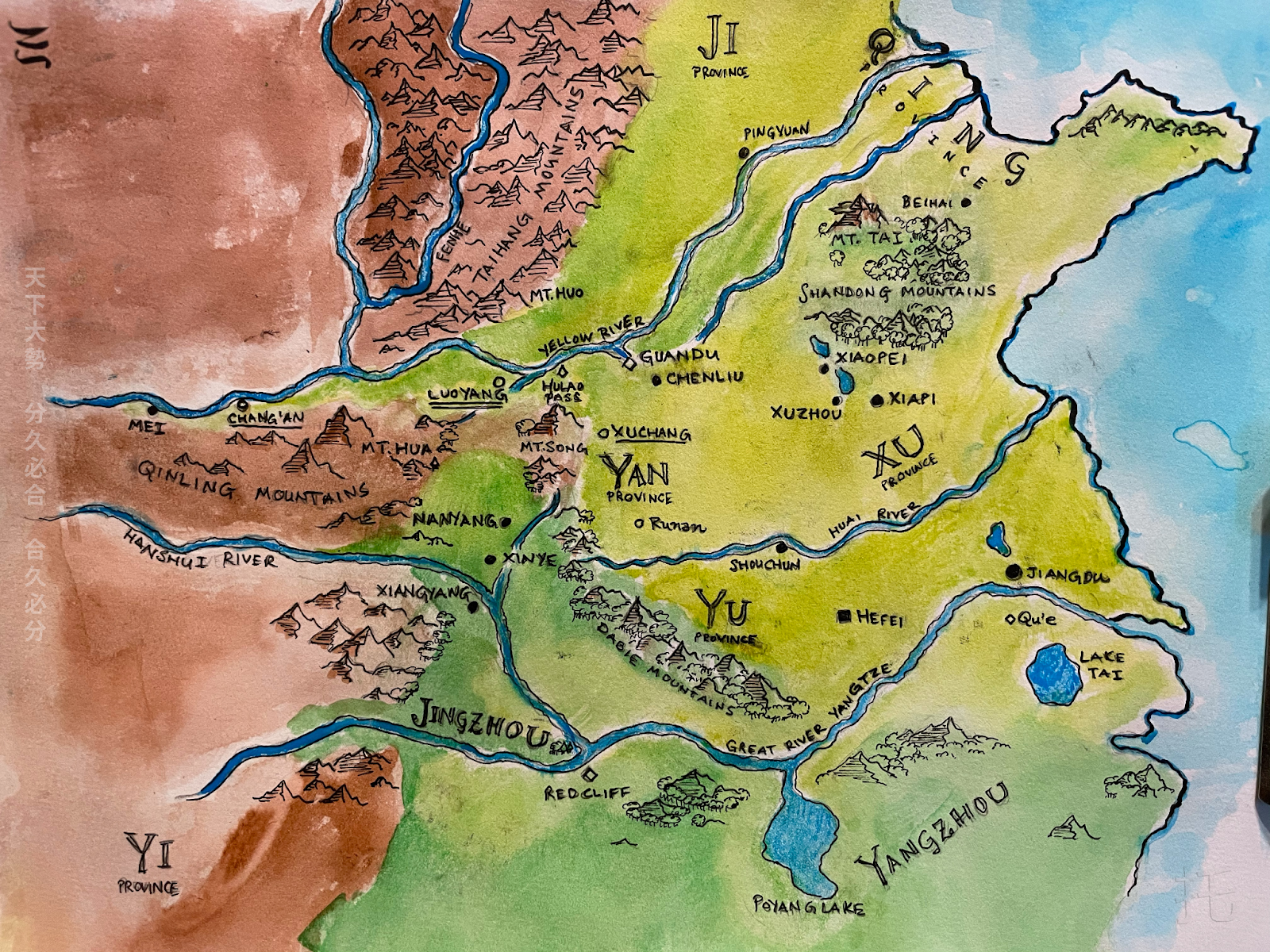
Map of Selected Important Locales in Han China (184-208 CE) by Jacob Torbeck
Liu Bei to the Rescue (193 CE)
When last we left our hero, Liu Bei, he was governing the county of Pingyuan with Guan Yu and Zhang Fei at his side. Luo tells us that, despite rebellion springing up in some places, Liu Bei’s benevolence and virtue had enabled the people of his jurisdiction to live a peaceful and prosperous life. Into this setting crashes Taishi Ci, bringing Kong Rong’s desperate plea for aid against the Yellow Scarves army. Tens of thousands of untrained rebels are totally unconcerning for Liu Bei, who rides with only three thousand men to Kong Rong’s city of Beihai and quickly routs the peasant army.
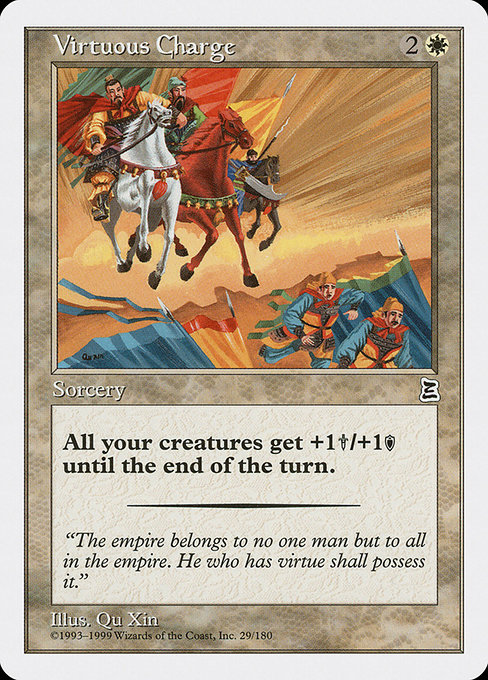
The matter of Cao Cao’s advance on Xuzhou remains, however. Confident in his abilities, but knowing that his army is too small to face Cao Cao, Liu sends for Zhao Zhilong, Tiger General, who arrives with two thousand men to bolster Liu’s forces. Before moving to head off Cao Cao, however, Liu Bei writes to him, hoping to resolve Cao Cao’s desire for vengeance without bloodshed. Cao Cao does not get the chance to answer however.
Lü Bu Seeks his Place (194 CE)
While Cao Cao advanced on Xuzhou, Lü Bu swoops in to occupy Cao’s home province, Yan. Lü Bu is too fierce for Cao Cao to beat by strength alone—Cao narrowly avoids death on two occasions. After the second occasion, however, he fakes his death.
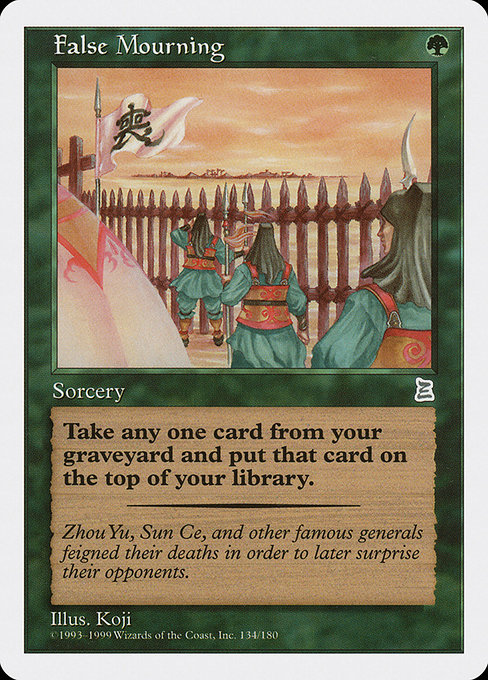
Luring Lü Bu into a false sense of security, Cao Cao manages to push him back, dealing his army a devastating blow. However, years of war and a plague of locusts gave rise to years of Famine. Luo notes that the price of grain skyrocketed astronomically, and that in some cases, the people resorted to cannibalism. Unable to feed large armies, Lü Bu and Cao Cao call a temporary truce.
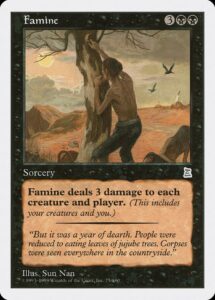
Meanwhile, in Xuzhou, Tao Qian dies, leaving the province to Liu Bei’s governance. Cao Cao is enraged, furious that Liu Bei can “take” Xuzhou without so much as drawing a sword, and furious that his revenge has been denied him.
Needing provisions for his forces, Cao Cao raids the remaining Yellow Scarves to the south, in Yingchuan and Runan, for their grain. Refreshed by this influx of food, Cao Cao’s army marches on Lü Bu and overwhelms his forces, pushing him to Liu Bei’s doorstep for aid. Zhang Fei wants to kill the capricious warrior, but Liu Bei instead shelters Lü Bu from Cao Cao’s forces at Xiapi.
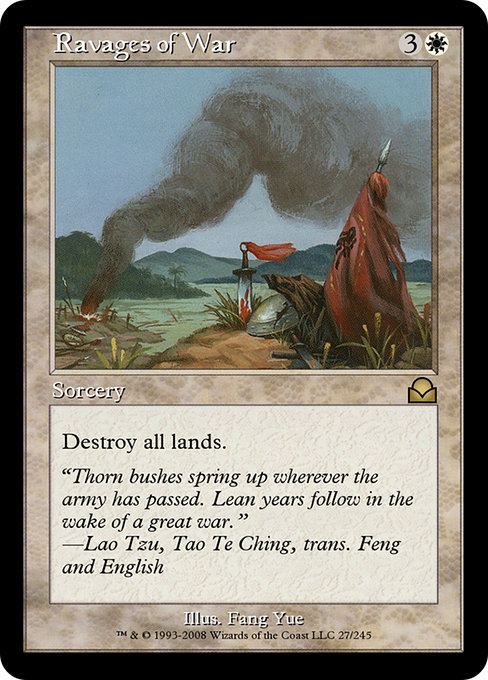
Cao Cao takes the Emperor (195-196 CE)
Back in Chang’an, the court remains under control of Dong’s generals. The ministers had begun to murmur among themselves about what would be done when a letter arrived, from Cao Cao, reporting his achievements. Could Cao Cao’s might be used to undo Dong Zhuo’s generals? A plan was thus hatched to move the emperor back to the once-ruined Luoyang. Finding the city’s walls to be indefensible, the ministers decide to move the emperor instead to Cao Cao’s camp. Cao Cao vows to protect the emperor, and is named Commander of the Capitol District; Cao Cao escorts the emperor to the safety of the city of Xuchang, southeast of Luoyang.
Empowered by his new position, Cao Cao immediately schemes to pit Liu Bei, now lord of Xuzhou, against Lü Bu. Liu Bei refuses to be used in this manner, so Cao Cao instead sends Liu Bei against the warlord Yuan Shu (Yuan Shao’s brother). Lü Bu, a selfish opportunist, plays into Cao Cao’s plot, and sees this as an opportunity to occupy Xuzhou. Zhang Fei, having been left in charge, is too drunk to repel the attack, but escapes. Thus, upon his return Liu Bei moves into Xiapi, leaving Lü Bu in the stronghold of Xuzhou. Not wanting enemies on both sides, Liu Bei makes peace with Lü Bu, falling into an uneasy alliance.
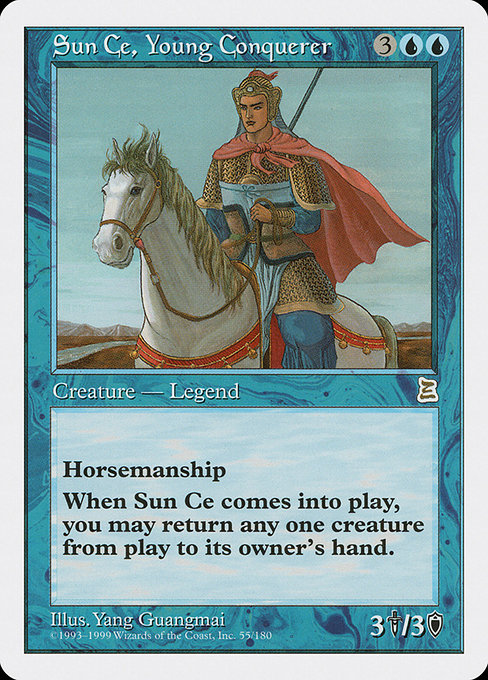
Sun Ce Founds a Kingdom in the South (195-196 CE)
Yuan Shu commanded forces to the south of Xuzhou, near the Yangtze, where Sun Ce had settled and gathered power before entering Yuan Shu’s service. At a victory banquet, Sun Ce plead to Yuan Shu, “My father’s death remains unavenged . . . I come, therefore, to beg a few thousand soldiers to take across the river in order to save my family . . . I have here the Imperial Seal left me by my father; I offer it to you as security.” (p.116-117)
Yuan Shu coveted the seal, and agreed, giving Sun Ce a contingent of three thousand men and five hundred horses, saying he would hold the seal “temporarily” until Sun’s return.
Riding out to meet him in battle, Taishi Ci (who had previously brought Liu Bei to aid Kong Rong) found himself unable to best Sun Ce, and Sun Ce won Taishi Ci’s respect. With Cheng Pu and Zhao Yu, Chief Commander at his side; Sun Ce defeats the imperial inspector of Yangzhou, wins Taishi Ci to his side, and conquers the southlands, establishing the foundation for the kingdom of Wu. Sun Ce’s battle prowess with a spear, and his great strength—he dispatches an enemy officer by crushing him to death with his bare hands—earn him the name “Young Conqueror.” He then eliminated the mountain bandits, and employed Hua Tuo, Honored Physician to attend to his commanders.
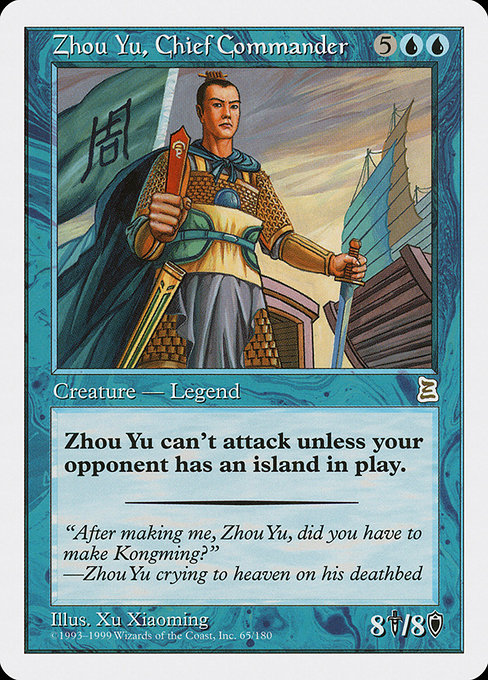
Having thus established himself, he sent word to Yuan Shu, requesting the return of the Imperial Seal. Yuan Shu stalled—hoping to bide time until he could utilize the seal to declare himself emperor. Looking north, toward Liu Bei and Lü Bu, Yuan Shu began to hatch a plot to pit them against one another. Using the seal and superstition as justification, Yuan Shu declares himself emperor, naming the Dynasty Zhong, and hastens to form an alliance with Lü Bu through marriage of their children. Lü Bu rejected this, angering Yuan Shu, and provoking him to send seven armies toward Xuzhou.
With five armies of his own, Lü Bu scatters Yuan Shu’s troops, and an army led by Guan Yu intercepts them and forces Yuan Shu to retreat south past the Huai river. Turning to Sun Ce for aid, Yuan Shu was met with hostility over the latter’s refusal to return the Imperial Seal. Fortifying his positions, Sun Ce writes to Cao Cao to form an alliance against the pretender to the throne. With Lü Bu and Liu Bei, Cao Cao drove Yuan Shu from his “imperial capital,” though they could not capture him.
The Fall of Lü Bu
In the meantime, Cao Cao found himself able to once again look east. Yuan Shu, in the South, was greatly diminished. In the West, Dong Zhuo’s generals had finally met their ends at the hands of governors loyal to the emperor. In the north, Yuan Shao, still a formidable warlord, busied himself in an attempt to defeat Gongsun Zan, one of Liu Bei’s former mentors. Cao Cao now used his momentarily alliance with Lü Bu to insinuate his own advisors into Lü Bu’s inner circle as spies, and leveraged his imperial authority to send orders to Liu Bei to attack Lü Bu. The orders were intercepted, and Lü Bu sent his commanders, including Zhang Liao, toward Liu Bei at Xiaopei.
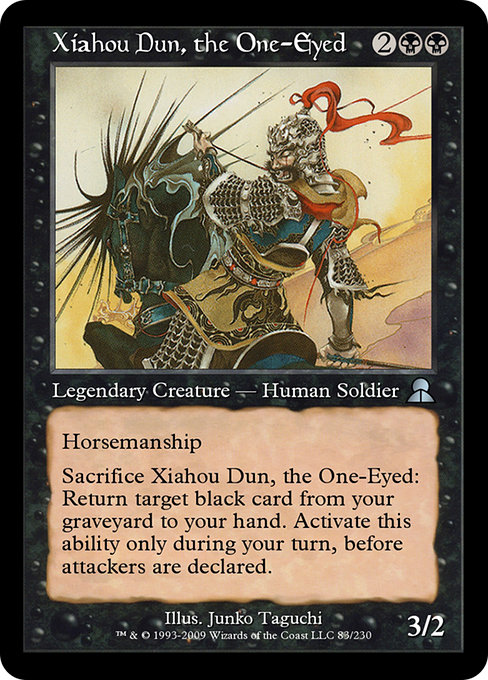
Cao Cao, receiving a messenger from Liu Bei, sent Xiahou Dun out to engage Lü Bu’s forces. As Xiahou threatened to overcome the enemy commander in single combat, one of the other enemy commanders “drew his bow, sighted true,” and shot Xiahou Dun in his left eye. In a spectacle that shocked both sides, Xiahou Dun plucked the arrow from skull, eye still attached, swallowed his eye, and speared the archer in the face before returning to his lines.
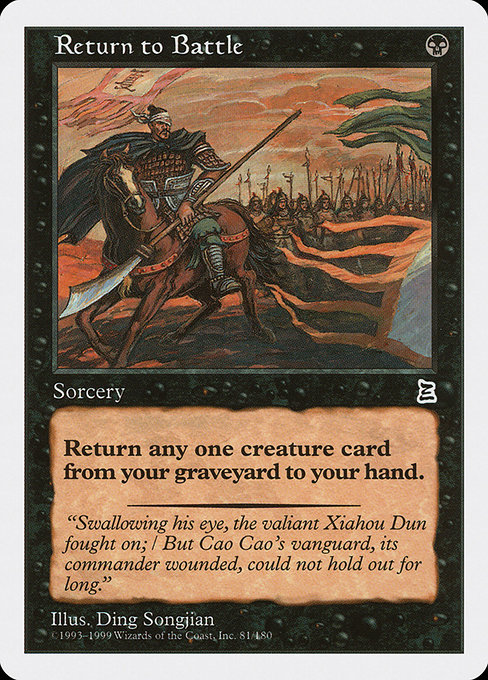
Cao Cao’s forces were temporarily stalled, long enough for Lü Bu’s to take Xiapi and drive Liu Bei, Zhang Fei, and Guan Yu away from the city, regrouping with Cao Cao. Meanwhile, Cao Cao’s spies were doing their work, convincing Lü Bu to mount a night attack to prevent Cao Cao from pressing through the hills toward the seat of the province in Xuzhou. While Lü Bu fought in the pass, Cao Cao’s general Cao Ren reclaimed Xiaopei, and forces loyal to Liu Bei and Cao Cao sealed the gates of Xuzhou, leaving Lü Bu nowhere to run but Xiapi.
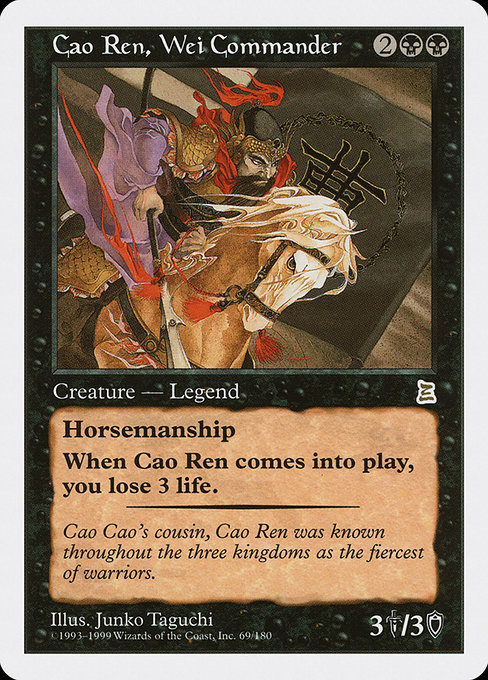
Cao Cao’s forces pursued him, laying siege to the city. After so many defeats, Lü Bu began to despair, spending his days drinking with his wives, Lady Yan and Diaochan, who implored him not to ride forth into danger. Nevertheless, Cao Cao’s offensive was stymied. Cao Cao’s strategists then devised a way to route the waters of the Yi and Si into Xiapi, flooding it. Still, Lü Bu spent his days drinking with his wives. Finally, angered by Lü Bu’s refusal to deal with the siege, his commanders absconded with Red Hare, and delivered the city to Cao Cao.
Brought before Cao Cao and Liu Bei, the two considered the fates of Lü Bu, Zhang Liao, and the others. While he and Guan Yu urged that Zhang Liao—a man renowned for his integrity—be spared, Liu Bei reminded Cao Cao that Lü Bu had betrayed every master he’d ever served. Thus, Lü Bu was hung and beheaded; his wives and daughters were transported to the capital where they could be supported, as it was said “that he who rules humanely will never cut off the sacrifices from a man’s descendants.”
What Was Not in the Cards
One “character” we see this week is depicted in card art, card names, flavor text, and in the story but has no card of its own. That character is the legendary steed Red Hare. Luo’s novel exaggerates Red Hare’s powers and capabilities to extraordinary lengths, and it appears at various times throughout 77 of the novel’s 120 chapters—more than many other characters.
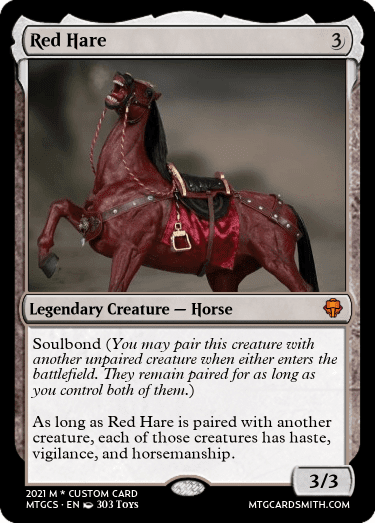
I debated how one might depict the aspect of having a steed, and “soulbond” was a mechanical way that I liked better than any alternative I came up with. The inspiration from this card’s abilities and power and toughness come straight from Magic’s other horses, which are often 3/3 (though with a lot of variance), as well as the card Riding Red Hare, which grants +3/+3 and horsemanship.
Red Hare is described as fast and untiring, so haste, vigilance, and horsemanship were a great fit. Without a paired “rider,” it becomes much less of a threat, but with a rider, dropping this for three mana feels great. Because Red Hare was ridden by Lü Bu and Guan Yu, I made it colorless, so it could fit into an EDH deck helmed by either.
Read On!
In these nine chapters (roughly seventy pages), we read how Lü Bu’s sensuousness and selfishness chip away at his strength until he has nothing left. We also see Cao Cao’s skill at seizing control and playing his enemies against one another.
While I do not have the space to do a thorough analysis or commentary of my own, these chapters have a lot of discourse about how wives and daughters were treated in this time period. Seventeenth century commentators and editors Mao Lun and Mao Zonggang note that a deliberate contrast between a peasant hunter, Liu An, who kills his wife and serves her to Liu Bei as “wolf meat”; Liu Bei, who—though once praised as genuinely respectful toward his mother—abandons his family twice for his own safety (and comments that brothers are more important than wives—“wives are like clothes”); and Lü Bu, who takes council from his wives, and will not leave them.
Moss Roberts writes in his notes to chapter 19 that this “frightful” attitude toward wives is depicted to “show the readiness of a true brother to sacrifice his family to the cause.” Everything in the story is relativized to the cause of the Empire: Lü Bu is shown as weak, Liu An as generous, and Liu Bei as full of virtue. Our contemporary judgments would differ.
In the next installment, we see Cao Cao attempt to consolidate power even further. With other generals brought to heel, will Liu Bei find safety? Read on!
Recommended Reading:
Luo Guanzhong, Three Kingdoms, Ch. 11-19. (pp. 85-156)
Susan Kingsley Kent, “Challenging Gender Roles in Han Dynasty China,” Oxford Academic on Medium.com, March 15, 2021.
Mark Cartwright, “Women in Ancient China,” World History Encyclopedia. Last modified October 19, 2017.
Jacob Torbeck is a researcher and instructor of theology and ethics. He hails from Chicago, IL, and loves playing Commander and pre-modern cubes.

